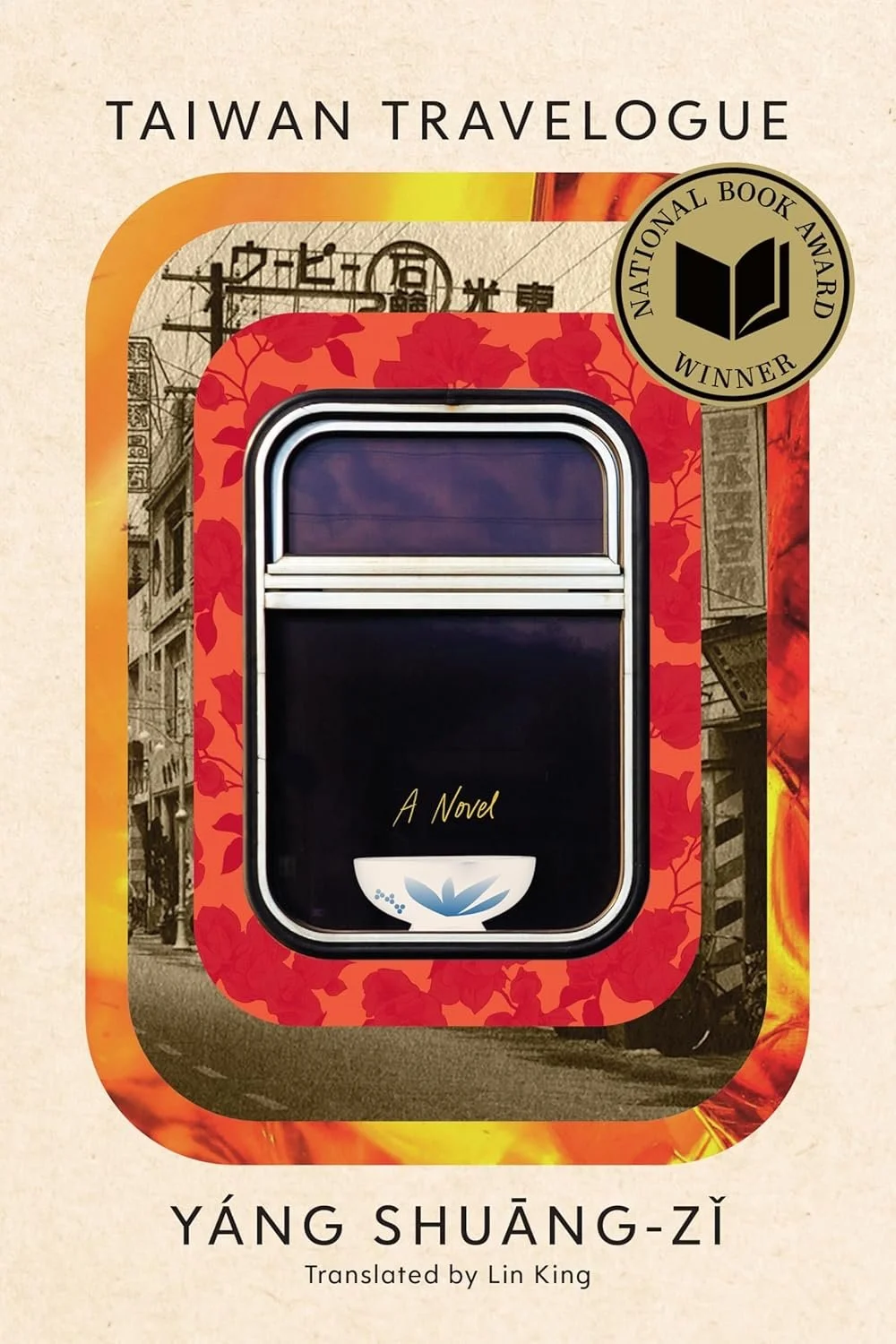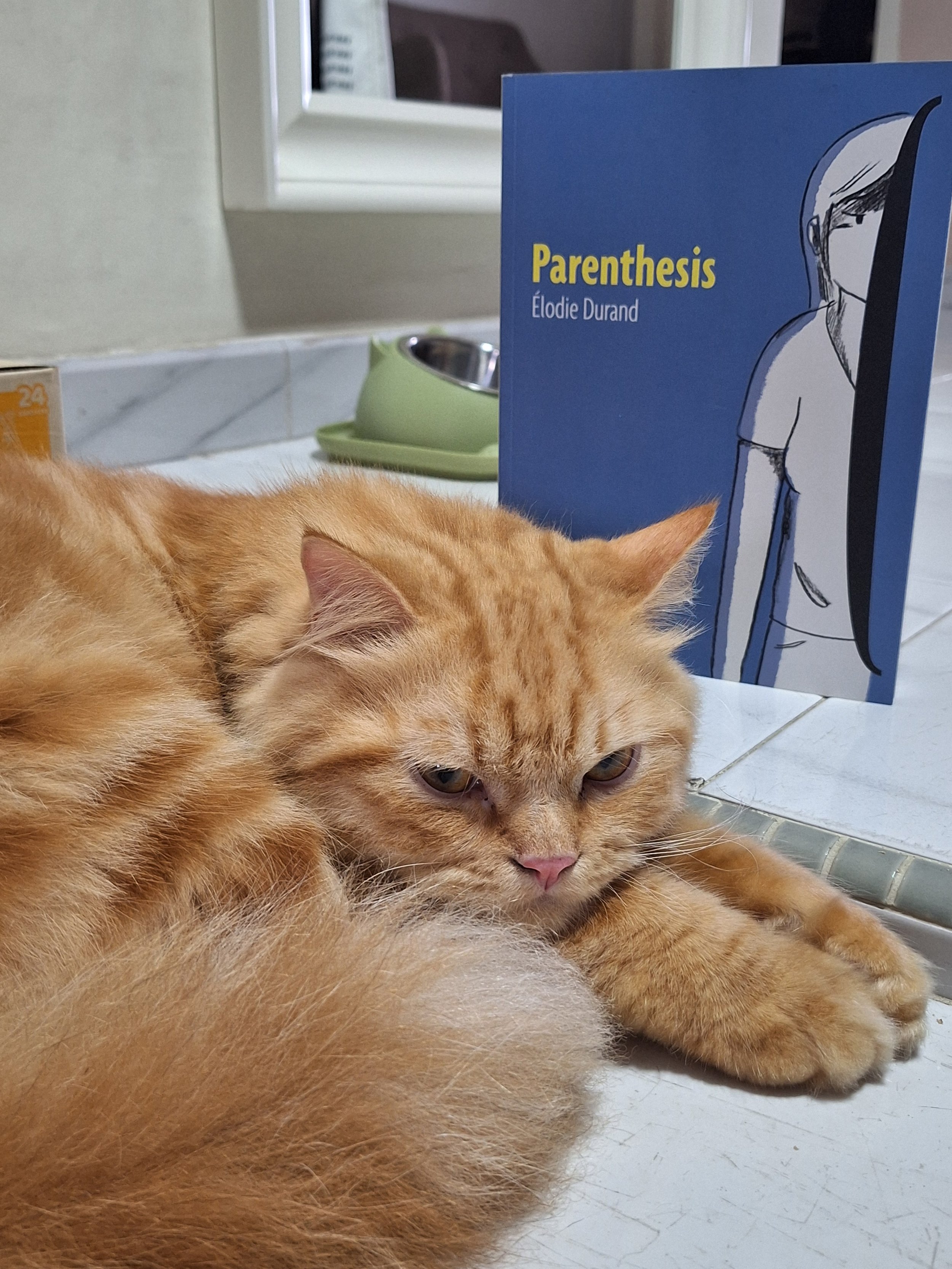Sins of the Father
By Kwan Ann Tan
Review of Cannibals by Shinya Tanaka, translated by Kalau Almony (United Kingdom: Honford Star, 2024)
-
This review contains significant discussion of physical and sexual violence, and domestic abuse.
Are we destined to become our parents? Is violence hereditary? How can inherited cycles of abuse be broken? These are questions that Cannibals grapples with in this deft sketch of life on the fringes, intimately capturing the complex and claustrophobic nature of familial relationships and inheritance in the poorest part of a small riverside Japanese town.
The first novel published by Shinya Tanaka in English, Cannibals sold over 200,000 copies in Japan when it was released in 2011, and a film adaptation was released in 2013 under the same title, translated in English to The Backwater. Tanaka is a slightly controversial figure as his work has been scrutinised for its seemingly sensational and dramatic content. In Cannibals, Tanaka demonstrates that he certainly knows how to capture the reader’s attention with scandal but couches that in larger questions about humanity and heredity among a forgotten population.
Opening in 1989, the novel is set near the end of the housing bubble in Japan, but we get no indication of that frantic growth or excitement as Tanaka zooms in on a small, almost forgotten town that hasn’t quite managed to catch up with the rest of the country. The stench that emanates from the river where the protagonist, seventeen-year-old Toma, lives permeates the text from the first few pages, demonstrating how disconnected the town is from government infrastructure—the sewage system is non-existent, and the entire town’s waste is dumped directly into the river.
Smell is a repeated motif throughout Cannibals. The “intense stench of summer” is synonymous with home to Toma, while also more metaphorically representing the toxic environment that he is unable to escape from by virtue of existing in the same space as his abuser—he takes it within him as he breathes in while the scent particles are constantly all around him. Eventually, the smell of the sewage is replaced by the smell of the tide, of rain, reminders of the riverside folk living on the border between humanity and nature, with the encroaching tides from the ocean mirroring the dramatic swell of the narrative as things come to a head.
Each of the relationships in the novel is grimly Freudian, with its psychosexual themes a clear tribute to Yukio Mishima’s work, one of Tanaka’s noted sources of inspiration. Toma’s navigation of his relationship with his teenage girlfriend, Chigusa, is haunted by the spectre of his father, Madoka, and his violence towards Toma’s mother, Jinko. Toma is constantly defined against his father: as her reason for leaving him behind with a violent drunk, Jinko says, “You’re that man’s seed, aren’t you?” Meanwhile, “I’m just like my dad” is a refrain in Toma’s conversations with Chigusa. It’s also clear that Toma has some sort of attraction to his father’s girlfriend, Kotoko, as he frequently watches them have sex, with emphasis placed on his father’s disembodied lower half “staring down” at Kotoko.
Madoka is almost a comically evil character due to the grip that he has on Toma’s life and his horrible treatment of every single one of the women in his life. He is an entirely unsympathetic character who is defined by his sadism in both thought and deed, the symbols that surround him merely foregrounding his connection to sexual violence. He is the only character who eats the eels that are fished from the toxic river of sewage, eels that are fished up by Toma, prepared by Jinko, and cooked by Kotoko. He charmingly describes the river as a “woman’s slit”, while it is hinted that his business deals with transporting illegal sex workers.
Throughout the novel, two violent incidents come to define Toma, as he struggles with rejecting his father’s violence. This struggle leads Toma to eventually choke Chigusa (mirroring what he has seen happen between Kotoko and his father) as well as hit a sex worker whom his father frequents. The second encounter ultimately demonstrates how toxic cycles are continued through imitation, as well as the novel’s complex relationship with victimhood and violence. It is crucial that when Toma commits a serious act of sexual violence, it is against an unnamed sex worker who is simply referred to as “the woman from the apartment building” or just “the woman”. At the end of their encounter, Toma thinks to himself: “If the woman was a hand-me-down from his father, that would make him the newest father”. Unlike the three women in Toma’s life—Jinko, Kotoko, Chigusa—who are real to him and whom he has been able to empathise with so far, the distance he has with this unnamed sex worker is what enables him to finally see women as objects and complete his transformation into his father: “Now that he had known the woman in the apartment, he would hit Chigusa, strangle her. It was funny how little confidence he had that he would be able to have sex with Chigusa without hitting her.”
But if the novel is a description of Toma’s transformation into his father, when he finally confronts his father head on, what ultimately frees him is not his own rejection of Madoka, but the realisation that this was never his story. After Chigusa was violently assaulted by his father, Toma’s first instinct is revenge, but Jinko stops him, saying “You won’t be able to. He’s never hit you.” Rather than this being a “you versus us” statement, it marks a clear break between Toma and his father. By removing Toma’s reason to commit revenge, Jinko frees him from the burden of carrying his father’s legacy; she takes matters into her own hands through an act of poetic violence that happens offscreen, unseen by Toma, with the eel cleaver used to prepare the eels that Toma’s father eats, in a clear metaphor for castration and the severing of a line of toxic masculinity.
At many points, the violence in the novel does veer towards gratuitous, especially with regards to its treatment of women, but there are tentative connections that hint at the existence of feminine community outside of Toma’s narrow viewpoint. The pot of eels prepared by Jinko in her shop is passed to Kotoko by Toma, who is told to tell Kotoko not to worry about returning the pot. Toma considers how returning a borrowed pot full of food is a “mutually consensual act of perfect politeness [that] could be taken as the perfect snide taunt”, but when the pot is returned to Jinko full of beans boiled with wakame stems, she expresses a little surprise and gratitude “with a slight bow and her hands together as if in prayer”. In addition to subtle social gestures, conversations between women happen independently of Toma, such as when Jinko speaks to Chigusa’s mother about their children, leading Jinko to question Toma about his relationship with Chigusa.
Ultimately, female sacrifice is the final theme of the novel, as a counter to the destruction committed by men. Jinko’s final sacrifice not only saves each of the other characters, but her decisive act of violence marks the end of this self-contained family drama, with the police finally stepping in to arrest her now that a “serious” crime has been committed. (Naturally, they are conspicuously absent when that violence is in the domestic sphere.) Toma ultimately ends the novel alone. The violence that remains a part of his identity is not addressed and remains an unresolved question, but perhaps he is at last free to make his own way in the world without the shadow of his parents.
The novel won the 146th Akutagawa Prize, Japan’s most prestigious literary prize, in 2012. What is perhaps most intriguing about Tanaka is that he claims to have never gotten a job in his life after failing his university examinations. He has read The Tale of Genji at least five times, in addition to mostly canonical male Japanese writers. It is perhaps this intellectual isolation that comes across most strongly in his work, with the more sensational aspects of the story couched in an almost ritualistic or classical tone. Overall, translator Kalau Almony does a good job of conveying the sparseness of language in his translation, delivering a heady, intoxicating experience, down to the surprising final sentence. Cannibals is a controversial novel that is certainly not for everyone, but for those who persist through its grim realities, there is hope yet that the cycle can be broken, that violence does not have to be the answer, and that, perhaps, we are not always destined to become our parents.
Kwan Ann Tan is Malaysian writer based in London. Her work has been published in The Offing, Joyland Magazine, Tahoma Literary Review, and Sine Theta Magazine, amongst others. You can find her at kwananntan.carrd.co.



#YISHREADS returns with the theme of sequels, you know, that genre that everyone loves to hate.